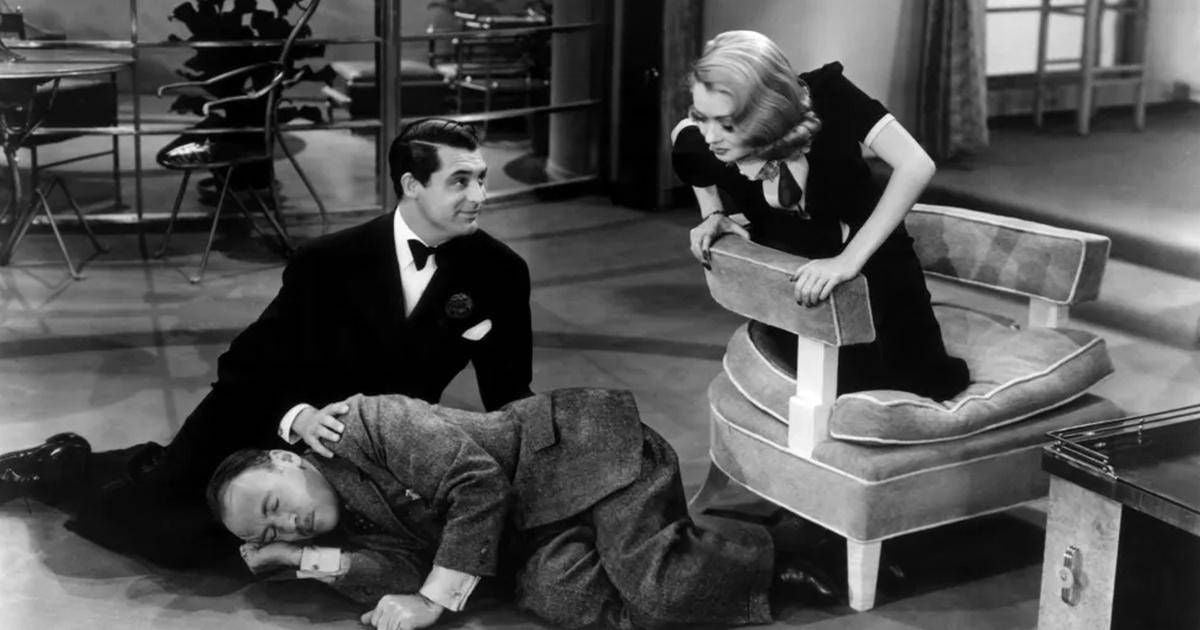The Outcry Over TCM Is About More Than Movies
Recent changes at Turner Classic Movies (TCM) raise questions about the broader business of media and the direction television takes over time

When Turner Classic Movies (TCM) launched nearly 30 years ago with "Gone with The Wind," uncut and uninterrupted, the mission of this new cable TV channel seemed clear: to be a purveyor of the stars and moments integral to American film culture.
For many, TCM provides rare access to a portfolio of cinema featuring groundbreaking filmmakers and actors like Cary Grant, Katharine Hepburn, James Stewart, Bette Davis — and to connect these movies with American culture and history more broadly.
"Outcry came from all sides"
It attracted a legion of fans, including some prominent names in Hollywood. So when news came that Warner Bros. Discovery, TCM's parent, was cutting back and eliminated the role of some staffers, including its longtime Senior Vice President of Programming and Content Strategy, Charles Tabesh, the backlash was swift.
Outcry came from all sides — from fans, from movie and media critics, and from three prominent filmmakers: Steven Spielberg, Martin Scorsese and Paul Thomas Anderson.
There were also questions for David Zaslav, Warner Bros. Discovery's chief executive, who was said to have TCM on all the time in his office. Spielberg, Scorsese and Anderson wanted to know: was TCM still a priority amid significant reorganization?
The trio met with Zaslav at the end of June to discuss their concerns, which led to two announcements.
Was TCM still a priority amid significant reorganization?
Spielberg, Scorsese and Anderson plan to partner with TCM on curating content, and Zaslav rehired Tabesh, who will report to Pam Abdy and Mike De Luca, Warner Bros.' top film executives now overseeing TCM after corporate reorganization.
Zaslav, in an interview with the New York Times' Maureen Dowd, said he planned to keep TCM's on-air hosts and boost further investment in the channel, as well as curation from Spielberg, Scorsese, Anderson and other prominent actors and directors.
"This is my favorite channel," Zaslav said. "I think it's critically important. It's like a trust. It tells you where America was and where America's going. It defines how people see this country. This is a beautiful living history."
Looking at the Future of Television
Even though the mission of TCM appears safe for now, some of the issues that caused TCM to become the story instead of tell it remain unresolved.
Dr. Caroline Frick, Associate Professor at the Moody College of Communication at the University of Texas at Austin, says the real problem is about the future of television and media itself.
"This is all wrapped up in the issues of streaming, the questions of when film libraries are bought and sold, and the implications of distribution," Frick — who worked in film preservation at Warner Bros. and was a programmer for TCM's competitor, American Movie Classics, until much of the film library was sold to TCM and corporate changes were made to AMC's programming — explained to Next Avenue. "It's about enabling access to film."
"[It's a] niche audience who know these films. That's why filmmakers like Spielberg and Scorsese care about people knowing them."
Frick says TCM succeeds in balancing context from its on-air hosts with its presentation of films. That context has helped build its following, and it's why Spielberg, Scorsese, Anderson and others have passionately defended the channel's importance.
Additionally, with the future of cable television in question as many cut the cord, the fact that the films are being curated, rather than being left for individual selection, is why the channel remains positively received.
"[It's a] niche audience who know these films," Frick said. "That's why filmmakers like Spielberg and Scorsese care about people knowing them."
Indeed, Frick says the recent attention about TCM did serve a purpose by making more people realize they had access to the channel. "[So] in some funny way, seeing the precarious nature of this resource was useful for them," Frick said.
It's Time to Focus on Preservation
The evolution of streaming is a challenge for everyone — it's also a point of focus in the current strike by the Writers Guild and the Screen Actors Guild — and raises questions about access to the films that TCM airs. Questions, Frick says, that need an answer from Warner Bros. Discovery and others.
"Companies haven't thought out digital asset management," Frick said. "What happens when a new CEO steps in and wants to sell? It's very interesting to see because every time you sell, access difficulty increases."
Because plans for these catalogs have not been thought out, Dr. Frick says, the concerns go beyond TCM. This is about the broader business of media and the direction television takes as the years progress.
"Be careful with these libraries. Be careful with these assets. This is part of our heritage."
"What is the conversation for legacy broadcasting entities? Do they have a vision or prioritize keeping robust public access to the materials?" Frick said. "No one knows the future of the model. It's less about TCM as a channel than the broader models and distributions of broadcasting."
Frick therefore has this warning to corporate executives when it comes to conversations on preserving public access to classic films: "Be careful with these libraries. Be careful with these assets. This is part of our heritage."


